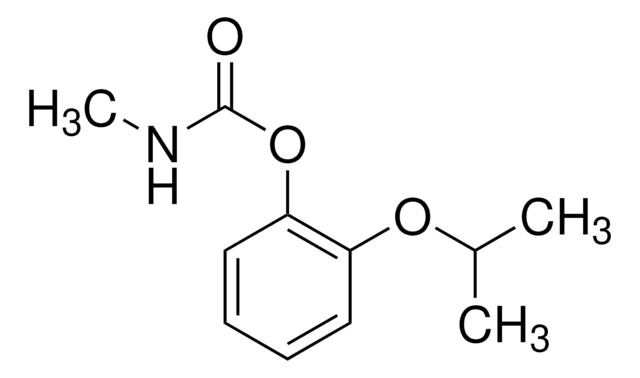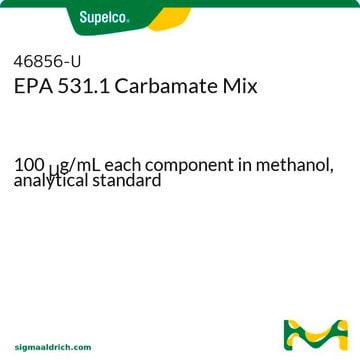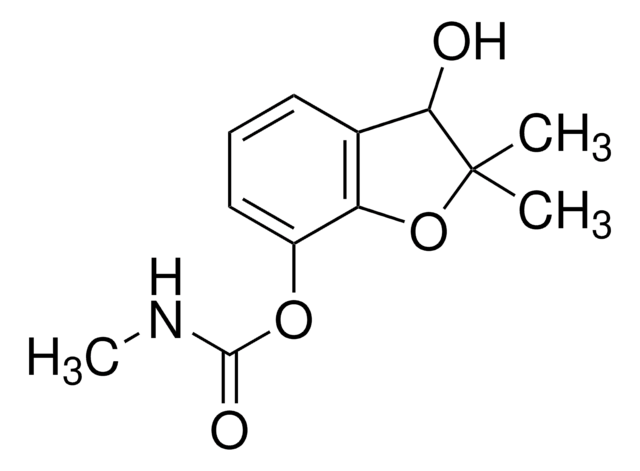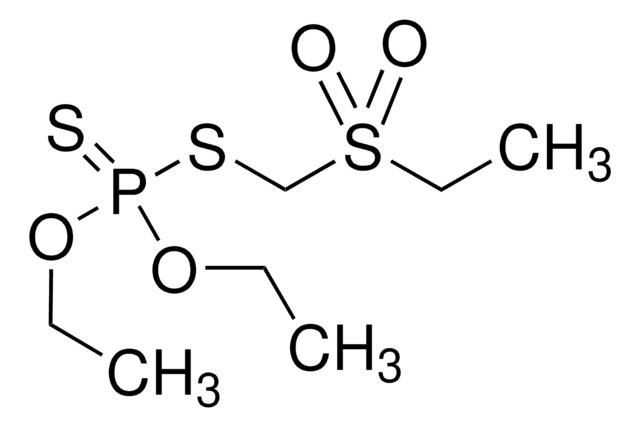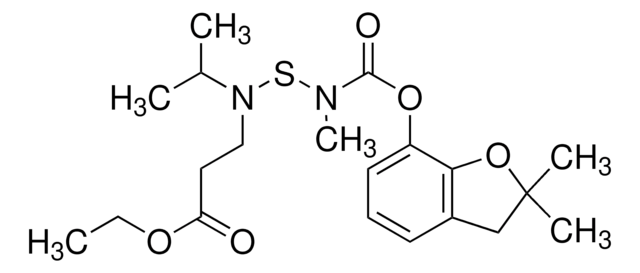32056
Carbofuran
PESTANAL®, analytical standard
Synonym(s):
2,3-Dihydro-2,2-dimethyl-7-benzofuranol N-methylcarbamate
About This Item
Recommended Products
grade
analytical standard
Quality Level
product line
PESTANAL®
shelf life
limited shelf life, expiry date on the label
technique(s)
HPLC: suitable
gas chromatography (GC): suitable
mp
150-153 °C (lit.)
application(s)
agriculture
environmental
format
neat
SMILES string
CNC(=O)Oc1cccc2CC(C)(C)Oc12
InChI
1S/C12H15NO3/c1-12(2)7-8-5-4-6-9(10(8)16-12)15-11(14)13-3/h4-6H,7H2,1-3H3,(H,13,14)
InChI key
DUEPRVBVGDRKAG-UHFFFAOYSA-N
Looking for similar products? Visit Product Comparison Guide
General description
Application
- In well water samples by high-performance liquid chromatography employing a variable-wavelength ultraviolet detector set.
- In fruits and vegetables by monoclonal enzyme immunoassay and high-performance liquid chromatography with fluorescence detection.
Legal Information
Signal Word
Danger
Hazard Statements
Precautionary Statements
Hazard Classifications
Acute Tox. 1 Oral - Acute Tox. 2 Inhalation - Acute Tox. 3 Dermal - Aquatic Acute 1 - Aquatic Chronic 1
Storage Class Code
6.1A - Combustible acute toxic Cat. 1 and 2 / very toxic hazardous materials
WGK
WGK 3
Flash Point(F)
Not applicable
Flash Point(C)
Not applicable
Choose from one of the most recent versions:
Already Own This Product?
Find documentation for the products that you have recently purchased in the Document Library.
Customers Also Viewed
Our team of scientists has experience in all areas of research including Life Science, Material Science, Chemical Synthesis, Chromatography, Analytical and many others.
Contact Technical Service


